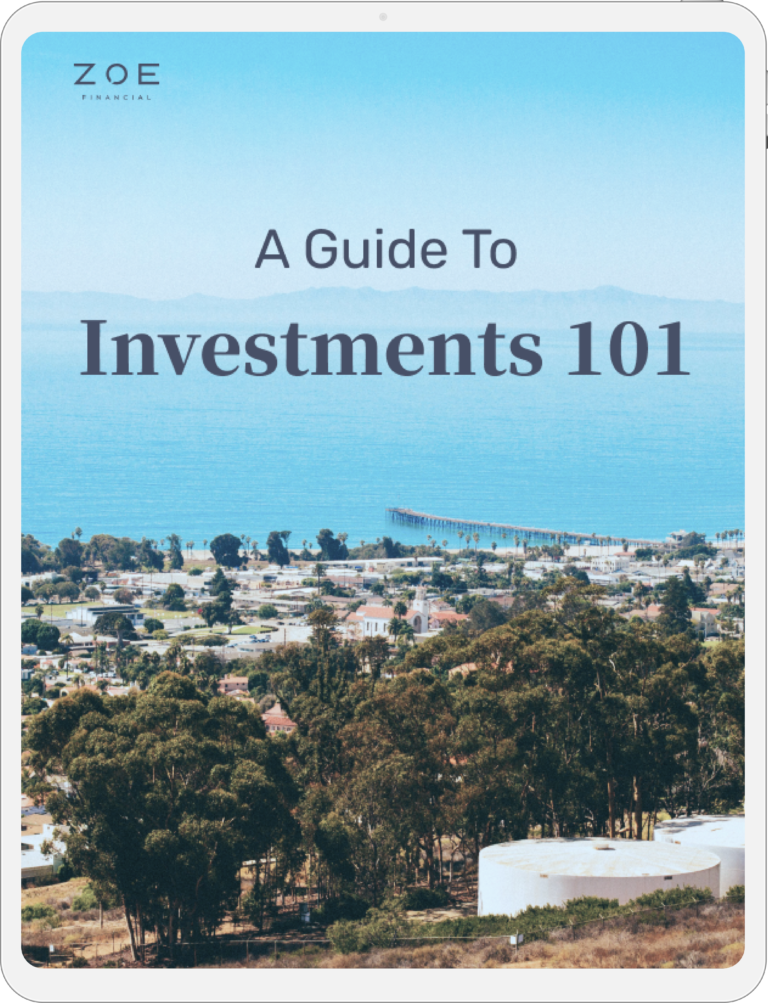Asset Management
If you’ve ever transferred money from your checking account to a savings account in order to get a higher interest rate or made a down payment on a home, you’ve evaluated the risks of acting on your decision. As well as sought to maximize your return by correctly allocating those assets.
Frankly, we’ve all done asset management without even realizing we’re doing it!
Our Ultimate Investment Guide Includes:
- Investing vs Saving
- The Stock Market vs Bond Market
- Types of Risks & Returns
Determining Asset Management Success
The degree of success of your assets is determined by the effectiveness with which your investable assets are managed. Unfortunately, it isn’t always that easy. When evaluating asset managers, there are three key questions to keep in mind:
Asset managers can be individuals or firms. They work with individual clients, families and organizations like corporations or universities. They use many different types of investments which can include stocks, bonds, derivatives, limited partnerships, real estate, and a host of other opportunities such as individually managed accounts (IMAs).
Asset managers aim to balance investment asset growth with risk, while also maximizing tax efficiency. This includes monitoring asset allocation, addressing liquidity needs, adapting to market fluctuations, and executing strategies to minimize tax burdens.Those additional fees can range from 0.25% to 1%, which can really add up!
Excluding those who manage their own investments directly – and do not use mutual funds or similar investment vehicles – leveraging professional asset management services is largely beneficial. The degree to which a person uses asset managers, however, will vary depending on how much they are able to invest. High-net worth clients are best suited for asset management. For most people, the right financial advisor can provide the same benefits.
Asset Manager vs. Wealth Planner
Asset managers differ from financial advisors in more ways than one, in part due to the nature of each respective role.
Asset management firms differ across the board. Some focus on managing pensions and retirement plans for large organizations, whereas others work with high net worth investors. One firm may focus on investing their client’s money in hedge funds while others create mutual funds. The key similarity between asset managers is that they directly manage how money is invested.
Wealth Planner is a very broad term, encompassing anything from an insurance agent or accountant to a broker, investment advisor, or financial planner. Their work with clients can be specific or all-encompassing.
Typically, those who refer to themselves as advisors offer a wide range of services, including investing, retirement, stock options, family planning, and almost every wealth goal you may have.
What is the largest asset in your portfolio?
Discover how a wealth manager can improve your portfolio.
Do I Need A Financial Advisor For Asset Management?
The modern wave of wealth management has enabled more accessible asset management. Technology has made access to investment products easier for all, not just the ultra-wealthy. The bad news is that technology has also brought a 24-hour news cycle right into our pockets and magnified our behavioral biases.
The value of a great commission-free advisor is not their ability to “beat” the market but to help you stay on track with what you are trying to accomplish with your investments and asset allocation. A great advisor will want to understand what you value, what keeps you up at night, your goals and aspirations, and then work backward from there in deciding what investments are necessary for your specific situation.
A Wealth Planner With Expertise in Asset Management
Connect with fiduciary financial advisors.
Trustworthy
Nationwide
Experienced




A Wealth Planner With Expertise in Asset Management
Connect with fiduciary financial advisors.
Trustworthy
Experienced
Nationwide




Asset Management Resources
Disclosure: This page is not investment advice and should not be relied on for such advice or as a substitute for consultation with professional accounting, tax, legal or financial advisors. The observations of industry trends should not be read as recommendations for stocks or sectors.
Ready to Grow
Your Wealth?
Let us connect you with the most qualified wealth planners
Ready to Grow Your Wealth?
Let us connect you with the most qualified wealth planners
